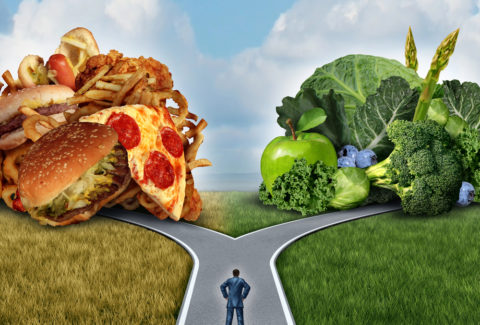Breaking the Cycle: Overcoming the Excuses for Overeating
Introduction:
Have you ever found yourself reaching for seconds or polishing off a bag of chips, even when you know you’re full? You’re not alone. Many of us struggle with overeating, often justifying our actions with a myriad of excuses. However, these excuses only perpetuate unhealthy eating habits and can lead to adverse consequences for our health and well-being. In this article, we’ll explore common excuses for overeating and why it’s crucial to break free from this cycle.
Excuse 1: “I’m Eating Healthy Foods, So It’s Okay to Eat More”
It’s easy to convince ourselves that it’s fine to indulge in extra helpings or larger portions if the food is healthy. While nutritious foods are undoubtedly beneficial for our bodies, consuming them in excessive amounts can still lead to overeating and weight gain. Portion control[1] is key, regardless of the healthfulness of the food.
Excuse #2: “I Don’t Want to Waste Food”
Many of us were raised with the notion that wasting food is unacceptable.[2] While minimizing food waste is admirable, it shouldn’t come at the expense of our health. Overeating to avoid throwing away leftovers or finishing a plate out of guilt only reinforces unhealthy eating patterns.
Excuse #3: “I’m Stressed/Tired/Emotional, and Food Comforts Me”
Turning to food for comfort during times of stress, fatigue, or emotional distress is a common coping mechanism.[3] However, using food as a crutch can lead to emotional eating and a reliance on unhealthy foods to soothe negative emotions. Seeking alternative coping strategies, such as exercise, meditation, or talking to a friend, can be more effective in addressing underlying issues.
Excuse #4: “I’ll Start Eating Healthier Tomorrow”
Procrastination[4] is the enemy of progress, especially when it comes to healthy eating habits. Delaying efforts to improve our diet perpetuates the cycle of overeating and prevents us from reaching our health goals. Instead of putting off healthy choices until tomorrow, start making small changes today to break free from overeating.
Excuse #5: “I Deserve to Indulge”
Rewarding ourselves with food for accomplishing tasks or achieving goals is a common practice. While it’s important to celebrate achievements, using food as a reward[5] can lead to overeating and an unhealthy relationship with food. Finding non-food rewards, such as treating yourself to a massage or enjoying a leisurely walk, can be more sustainable and supportive of overall well-being.
Breaking Free from Overeating:
Recognizing and challenging these excuses is the first step toward breaking free from the cycle of overeating. Instead of succumbing to these justifications, practice mindfulness and self-awareness during meals. Pay attention to hunger and fullness cues, eat slowly, and savor each bite. Experiment with portion control and find strategies to cope with emotions that don’t involve food. By taking proactive steps to address overeating, you can cultivate a healthier relationship with food and support your overall health and well-being.
[1] Rolls, B. J. “What is the role of portion control in weight management?.” International journal of obesity 38.1 (2014): S1-S8.
[2] Sheen, Florence, Charlotte A. Hardman, and Eric Robinson. “Food waste concerns, eating behaviour and body weight.” Appetite 151 (2020): 104692.
[3] Razzoli, Maria, et al. “Stress, overeating, and obesity: Insights from human studies and preclinical models.” Neuroscience & Biobehavioral Reviews 76 (2017): 154-162.
[4] Phillips, Lindsey, and William McCown. “Procrastination: An emotional struggle.” Counseling Today (2019).
[5] Vainik, Uku, Isabel García‐García, and Alain Dagher. “Uncontrolled eating: a unifying heritable trait linked with obesity, overeating, personality and the brain.” European Journal of Neuroscience 50.3 (2019): 2430-2445.









